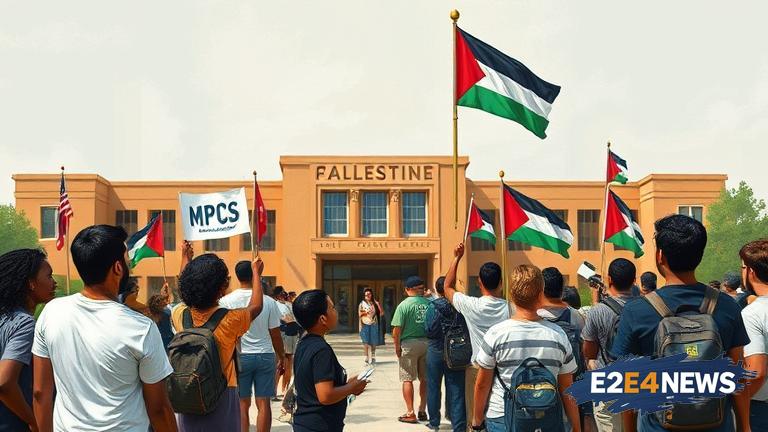A recent lawsuit filed against Montgomery County Public Schools (MCPS) has brought attention to the controversy surrounding the support of pro-Palestine teachers within the school system. The lawsuit, which was filed by a group of parents and community members, alleges that MCPS has failed to address the promotion of anti-Israel and pro-Palestine ideologies by some teachers. The plaintiffs claim that this has created a hostile environment for Jewish students and has undermined the school system’s commitment to providing a balanced and inclusive education. The lawsuit has sparked a heated debate over the role of teachers in promoting social and political ideologies, with some arguing that teachers have the right to express their opinions and others arguing that they have a responsibility to remain neutral. The issue has also raised questions about the school system’s policies and procedures for addressing complaints about teacher conduct and the promotion of controversial ideologies. MCPS has denied the allegations and has stated that it is committed to providing a safe and inclusive environment for all students. The school system has also emphasized its commitment to academic freedom and the importance of allowing teachers to express their opinions and engage in discussions about controversial topics. However, some community members have expressed concerns that the school system’s handling of the issue has been inadequate and that more needs to be done to address the concerns of Jewish students and families. The lawsuit has also highlighted the complexities of addressing issues related to the Israeli-Palestinian conflict in an educational setting, with some arguing that the issue is too sensitive and complex to be addressed in the classroom. Others have argued that the issue is an important part of modern history and politics and that students should be encouraged to engage in discussions and debates about the topic. The controversy has also raised questions about the role of external organizations and advocacy groups in shaping the curriculum and educational policies of public schools. Some have argued that these groups have too much influence and that their agendas can be divisive and polarizing. The lawsuit is ongoing, and it is unclear how it will be resolved. However, it has already sparked a important conversation about the role of teachers, the promotion of social and political ideologies, and the importance of providing a balanced and inclusive education. The controversy has also highlighted the need for school systems to have clear policies and procedures for addressing complaints about teacher conduct and the promotion of controversial ideologies. Ultimately, the outcome of the lawsuit will depend on the specific facts and circumstances of the case, as well as the legal standards and precedents that apply. The controversy has sparked a national debate about the issue, with many experts and commentators weighing in on the topic. The issue is complex and multifaceted, and it will likely require a nuanced and thoughtful approach to resolve. The school system’s handling of the issue will be closely watched, and it will be important to ensure that the rights and interests of all students and families are protected.
